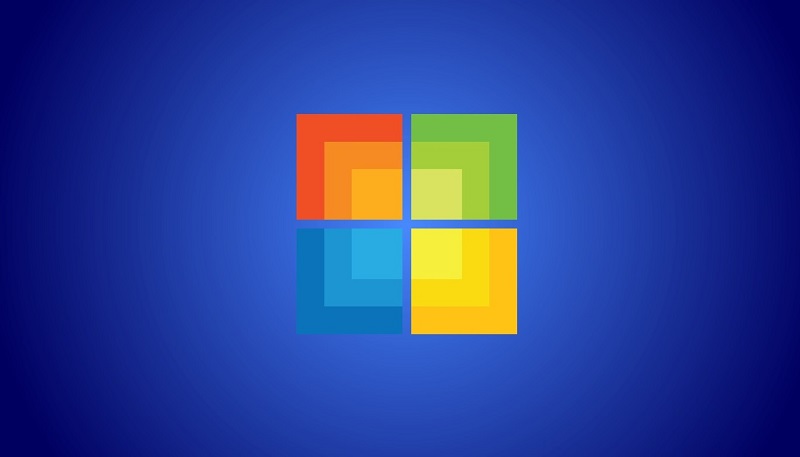The thing did not look too good for Microsoft a few years ago: stripped of virtually any possibility in the mobility segment and with a market that slowly but inexorably moved away from the PC to go to the smartphone, Redmond stopped giving competition to companies who had stolen the wallet looking to the future.
Many of them did not have to adapt because they already know what they say: the best way to predict the future is to create it. Which is what Google, Facebook, or Apple did. All seemed to advance in the right lane with the revolution that the mobile and the cloud provoked in our world thanks to them. And yet, Microsoft has risen from its ashes and has regained a role that almost lost along the way.
The changes can be very good
The frenetic technological evolution has taken a little unmarked giants that were all a few years ago. Intel, IBM, Yahoo! or AOL remain relevant, but today many others set the tone. Microsoft also was in that group, and after losing the train of the mobility seemed to be in problems before its competitors.
In 2013 the situation took a remarkable turn. The appearance of Nadella has made the strategy of Microsoft change radically. Microsoft’s new CEO has reduced resources dedicated to “veteran” divisions and has focused efforts on two key areas, the cloud and the mobility segment.
That has suddenly made the company return to relevancy, something that stood out Keith Weiss, a Morgan Stanely analyst who stated that Microsoft “failed in searches, in the browser and on mobile. The public cloud is what they have, and it’s something so big it could be bigger than the other three together.”
The change of mentality in Microsoft is evident in Microsoft, where its veterans have realized that there is another way of doing things. Joy Chik, one of those responsible for the mobile business suite, explained how “in the past we had been months and even years before admitting defeat.We now say” not working “and pivot […] We do not encourage failure, It is more the fact of what we learn from failure.”
His words basically offered the same message that Nadella, who commented how in the past “we fail with all that surrounds our culture, especially when it is referring to learn from others. Otherwise, how can we have escaped the Great trends?”
This new attitude has made the company has transformed not only with its current staff, but has done so through the companies that has acquired in recent times. Javier Soltero (Acompli), Chad Fowler (Wunderlist), and Nat Friedman (Xamarin) are some of the creators of this transformation, and the famous “acqui-hires” (buying the company but especially talent) have been especially fruitful at Microsoft.

More and (seemingly) better acquisitions
Microsoft has made 36 major acquisitions in two and a half years. Ballmer made 13 in his last two and a half years as well. Among them “bluffs” such as Nokia and aQuantive that have ended up weighing the results and the recovery of the Redmond company. Purchases of the Nadella era have been used to reinforce its cloud proposals (Revolution Analytics, Metanautix), its office automation and productivity services (Sunrise Atelier, VoloMetrix) and security (Secure Islands, Adallom)
Some of these purchases have been directed to reinforce its offer in the field of mobility, and the already mentioned 6WunderKinder and Acompli have joined others like Swiftkey to tempt users not already Windows Phone, but iOS and Android, Which are increasingly demonstrating more confidence in Microsoft’s mobile applications and services for these devices.
Others, such as Mojang (the company responsible for Minecraft) has been a particularly relevant bet in the field of video games and education, while Xamarin is one of Microsoft’s most open approaches to Open Source developers. More and more projects are published with licenses of this type, and Microsoft’s love for this philosophy is now evident.
Microsoft’s revenue streams are clearly changing: fewer Windows licenses, and much more relevance to its cloud services and its office suite with the new subscription model.
Windows has gone from assuming 33% of revenue in 2002 to barely 20% at present, while revenue through the Office 365 office suite, which has now switched to a subscription model, have grown by 54% In the last fiscal year and already represent 28% of Microsoft sales.
Azure has sold more than double what it sold the previous year also, although according to Gartner Amazon and its Web Services continues being five times greater: there is room for improvement. Still, according to the WSJ, this division accounts for 22% of the company’s revenue. All of a sudden, Microsoft has become the basis of many companies operations – and we’re not talking about Windows PCs – something they’ve been missing out on in recent years.
You may also like to read another article on improtecinc: MacOS Sierra: How to install it and what are its main innovations?
Goodbye to complacency
The attitude has also changed on other fronts in which Microsoft had become a self-indulgent company. Single, founder of Acompli, became from acquisition to an upside value in Redmond: it went from leading the development of Outlook to being responsible for setting the course of the Office office suite.
In his first days to the front he wanted to leave a mark on the team responsible for this suite, and accused all of them not to attack fronts such as the iPhone or Android devices. At the end of his presentation he made it clear where Outlook and Office might end up going: he showed a slide with a sad face right above the Lotus Notes logo, that corporate e-mail application that dominated this segment in the 1980s and part of the 90.
Something similar happened with Microsoft’s relationship with Open Source, which has been strengthened year after year and has received a significant boost after the purchase of Xamarin . It seems unthinkable when Ballmer spoke of Linux as a cancer competing with Microsoft software, but now the Xamarin software has made Friedman the top manager of the mobile development tools division.
Even Friedman himself is surprised by the change. In a recent interview with Fortune, Xamarin’s co-founder explained how “for us it’s incredible.” For a long time, Microsoft was on the opposite side of Open Source, and now would say that among the big companies, Microsoft is being the spearhead it’s a radical change.”
These moves are coupled with the support of Linux in Azure, the appearance of a version of SQL for Linux, the certifications that have been implemented in collaboration with Red Hat or that small little detail: the execution of a console Bash directly on the Windows desktop. Hallucinatory.
Looking to the future is much better than staying anchored in the past
Microsoft’s attitude has also changed in its way of facing the future. We compared Steve Ballmer to Tim Cook a few days ago and there were disturbing coincidences between the two managers : revenue-centered and short-term, the threat of being overtaken by competitors looking ahead was and is clear.
In Microsoft have long been looking to the future with various efforts ranging from the striking HoloLens and the mixed reality that the company proposes to those singular supercomputers that promise us the FPGAs that are under development in the company.
That does not mean that the company will surprise us with products like Surface Studio and have turned the Xbox One into an increasingly “round” console, which is also the last to benefit from that ambitious convergence project that Microsoft started with Windows 10 And that seems to have a future in mobile.
However if there is an area where Microsoft is putting all the meat on the grill, that is the artificial intelligence. Microsoft has a division with more than 5000 engineers working on projects such as its APIs for “cognitive services”, responsible for features such as automatic translation on Skype or those unique experiments that increasingly point to the future of this technology.
That bet by trends that precisely could mark our future is the one that demonstrates the change of Microsoft more. The company seems to have overcome that desert crossing and now it seems straightforward to regain the relevance it should never have lost.
For more reviews visit http://apporello.com/.
Tags: Microsoft




Leave a Reply